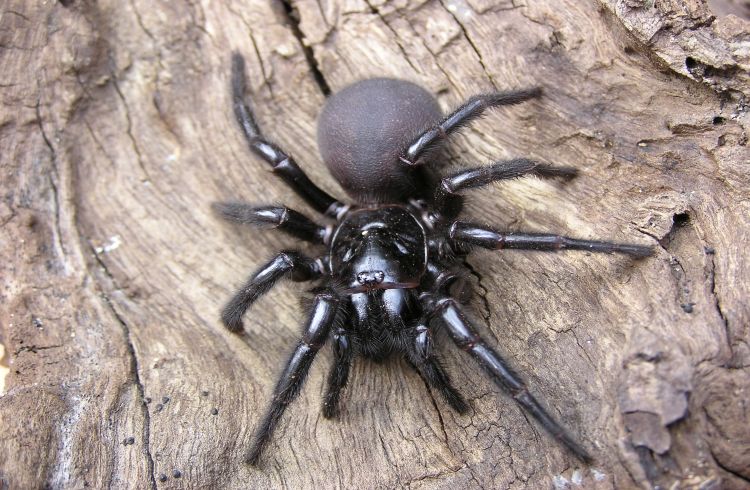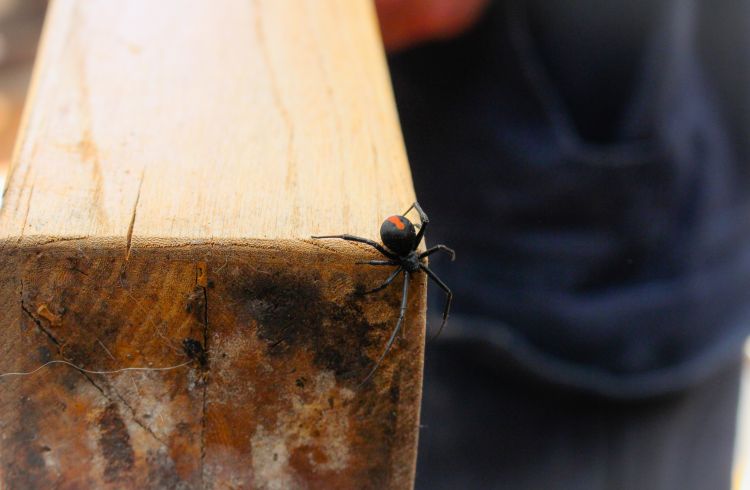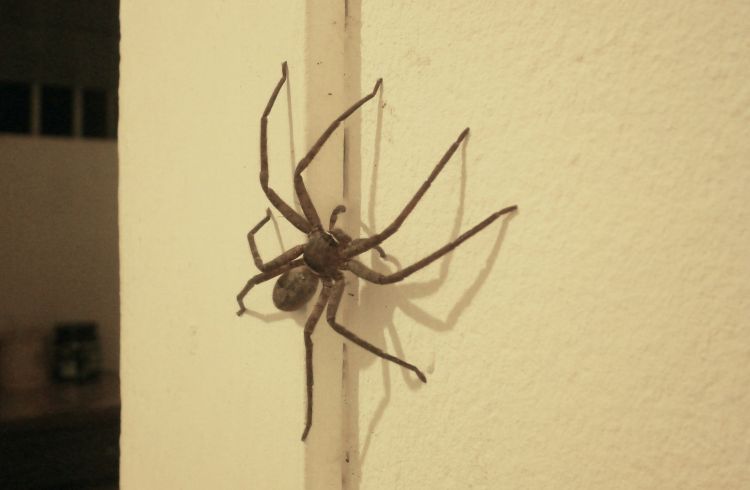Australian Spiders: What Travelers Need to Know to Stay Safe
Coronavirus (COVID-19) and travel: The situation around the world is changing dramatically. Various governments have changed their travel warnings to restrict travel during this time. To understand how this may impact cover under your policy, please go to our FAQs and select your country of residence.
For the latest travel warnings and alerts around the world, read about lockdowns and border restrictions.
From bite prevention to first aid, these are the things travelers need to know about dangerous Australian spiders. Find out what to do if you're bitten and how to identify a spider.
Shares
 Photo © Getty Images/James van den Broek
Photo © Getty Images/James van den Broek
Australia is well-known for its spiders, but the place isn't overrun with them. While we may have some of the world's most venomous species, you are unlikely to come across one unbless you go looking for one or happen to disturb one hiding away. They are more scared of us than we are of them.
Here's what you need to know about the species of spiders in Australia, what to look out for, and what to do if you are bitten.
Spiders in Australia
There are more than 2,000 species of spider in Australia but thankfully only a handful are dangerous to humans. All spiders have venom glands, but only some species have fangs large enough to puncture the skin and cause a reaction.
The first spider bite death recorded in Australia since 1981 was in 2016. However, approximately 2,000 people are bitten every year by redback spiders. An effective anti-venom for redback spiders was introduced in 1956, and funnel-web spider anti-venom has been given to at least 100 patients since it was developed in 1980.
The most common species people tend to interact with are:
Redback spider
Related to the North American widow spiders, these black and red beauties (sometimes orange too) like to hide away from the world in dark secluded spots such as letterboxes, under ledges, outdoor furniture, around bbqs and other hiding places; often decorated with sticky haphazard webs.

Funnel Web spider
Funnel webs aren't big fans of daylight so will hide away, with shoes and clothing being a known favourite hang out spot or in a small web-lined burrow outdoors. They can become aggressive if disturbed, often forming a characteristic strike pose with their front legs in the air and large fangs on show. Funnel web spider habitat extends primarily along the east coast of Australia, with summer being peak activity season. Sometimes these spiders are found in swimming pools.
White Tailed spider
Like other species, white tailed spiders like to hide and are usually only seen at night as they look for food. You will often see them after wet weather as they leave their hiding places and come into homes seeking shelter from the moisture. They are grey to black in color with a white tip on their abdomen (hence the "white tailed") and are found across Australia.
Huntsman spider
Found all over Australia, these guys aren't dangerous to humans at all however they are fast movers and have a tendency to jump. They look scary because they can grow large, have long legs and are hairy. But.. they are the best pest controllers you can have, so if you have one hanging around your accommodation, leave it there to munch on bugs. They like to hide out under tree bark, logs and rocks. Unfortunately, they also like hiding out under the sun visor in cars, and have been known to scuttlie across the dashboard or windscreen, so make sure you wind your windows up and close that sunroof overnight.

Spider bite prevention
- Always shake out your shoes, wetsuits or clothes that haven't been worm for a while before putting them on, particuarly if you have left them outside
- Avoid leaving clothes or towels on the floor
- Wear shoes when you're outside and also at night
- Check your bedding if it's on or close to the floor
- If you spot a spider in a swimming pool, don't make the assumption that it has drowned. Some spiders will survive off the air bubbles attached to their leg hairs for hours. Funnel webs are known as the Aussie pool scuba divers of the spider world, so fish the spider out with a pool net or avoid it and have a cool shower instead of risking being bitten underwater.
First aid for spider bites
if you are bitten seek mdical attention straight away. If safe to do, contain the spider for identification in a sealable container or take a photo of it. Otherwise, do your best to describe the spider once you arrive at hospital focusing on features such as size, color, patterning, where you were when bitten etc.
Funnel Web spider
The main job of first-aid for a funnel-web spider bite is to prevent the venom from passing through to the lymphatic system and eventually into the bloodstream. The pressure/immobilization technique (as for snake bite) does this by compressing surface tissues and reducing muscle movement, slowing the lymphatic flow.
- Keep the patient as calm and quiet as possible
- Ring 000
- Keep the affected limb down and patient still
- Apply a pressure bandage as tightly, starting from the bitten area, bandage down to the end of the limb and then back to the top of the limb
- Bind a rigid splint onto the limb to prevent limb movement.
Redback spider
The treatment for a redback spider bite is different to that of a funnel web.
- Keep the patient as calm and quiet as possible
- Ring 000
- Keep the affected limb down and patient still
- Apply ice or a cold pack to the bite site
- Do not apply a compression bandage.
For other types of spider bite e.g white tailed, wolf, trapdoor
- Use an ice pack to lessen the pain and swelling
- Seek medical treatment.
Get a travel insurance quote for Australia
You can buy at home or while traveling, and claim online from anywhere in the world. With 150+ adventure activities covered and 24/7 emergency assistance.
Simple and flexible travel insurance
You can buy at home or while traveling, and claim online from anywhere in the world. With 150+ adventure activities covered and 24/7 emergency assistance.
Get a quote
3 Comments
hey this was super helpful! i'm moving to Australia soon and this helped a lot. thanks!
Where can I get antivenom for brown recluse spider and what are the symptoms of such a spider bite?
um im never going to australia now!!!